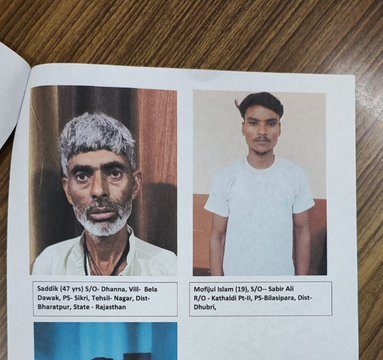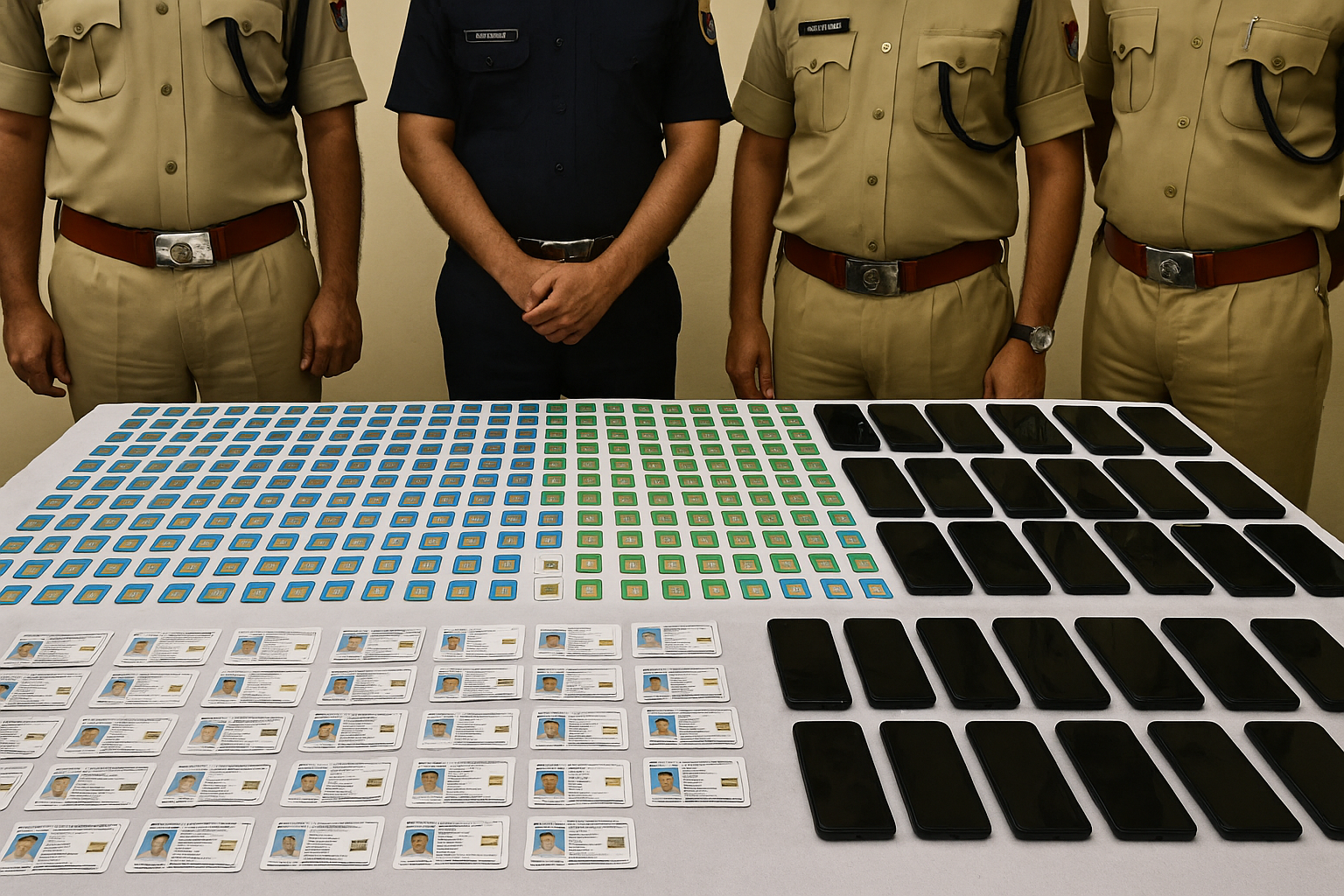In a major nationwide crackdown, Assam Police have dismantled a sophisticated SIM card racket with links to Pakistan, arresting seven individuals from different parts of India. The operation, codenamed “Operation Ghost SIM,” led to the seizure of 948 fraudulently obtained SIM cards allegedly used for cybercrimes and anti-national activities.
The investigation began after the Indian Army’s Gajraj Corps, based in Assam, alerted police to suspicious activities involving the sharing of One-Time Passwords (OTPs) with operatives in Pakistan. These OTPs were reportedly used to activate Indian WhatsApp accounts, allowing Pakistan-based users to operate under the guise of Indian phone numbers. Assam Director General of Police (DGP) Harmeet Singh confirmed that some of the accounts were used to report on the movement of Indian security forces, posing a direct threat to national security.
The SIM cards were acquired using forged documents and circulated across several states, enabling untraceable digital communications. Raids were carried out in multiple locations, including Hyderabad (Telangana), Bharatpur and Alwar (Rajasthan), and Dhubri and Morigaon (Assam).
Among those arrested were Akeek from Bharatpur, detained at Guwahati airport, and Arsad, also from Bharatpur, who was apprehended at New Delhi airport. Other suspects include Mofijul from Dhubri, arrested in Sangareddy (Telangana), and Jakariya from Bilasipara, Assam. The remaining three accused, identified as Soddik, Mufijul, and Anarul, were captured in the course of the coordinated raids.


Authorities are now investigating the potential scale of the operation and whether a larger conspiracy is involved. Fourteen more individuals from Assam’s Dhubri district are under scrutiny, with DGP Singh stating, “We are trying to find out if they were complicit in the racket or were duped by the cybercriminals.”
This development follows heightened India-Pakistan tensions after the April 22 terror attack in Pahalgam and reflects a broader crackdown on cybercrime across the country. Since 2024, the Indian government has deactivated over 80 lakh SIM cards issued using fake documents, using AI tools to detect anomalies. The Telecom Regulatory Authority of India (TRAI) has also strengthened its oversight by introducing message traceability norms and stricter rules for spam and telemarketing calls.
The government’s cybercrime helpline, 1930, has proven instrumental in countering fraud, helping save over ₹3,500 crore for more than 10 lakh potential victims. As digital threats increasingly intersect with national security, this operation highlights the urgent need for continued vigilance and robust enforcement in safeguarding India’s telecom networks.













